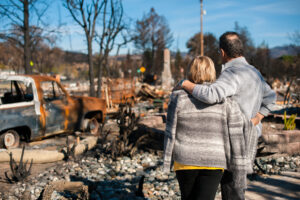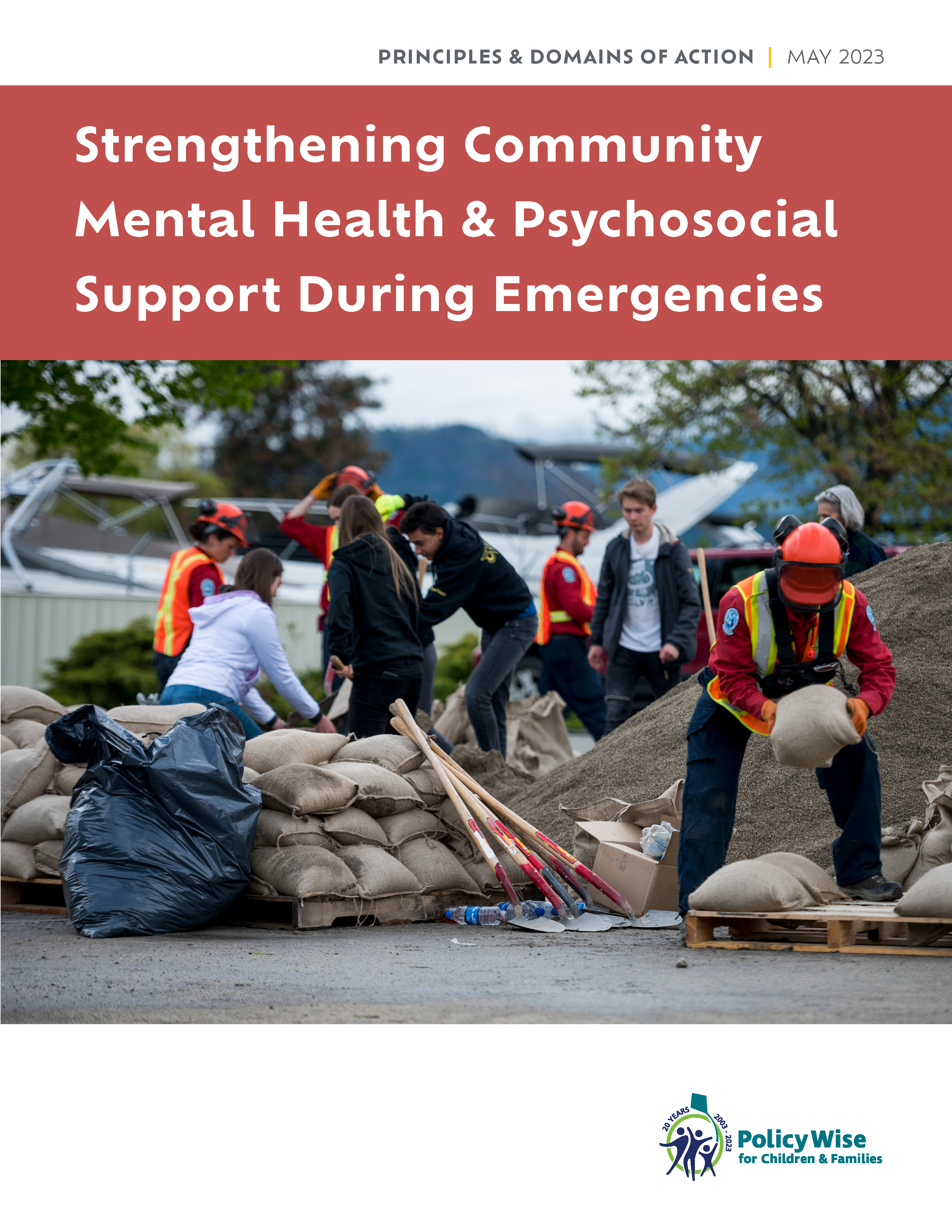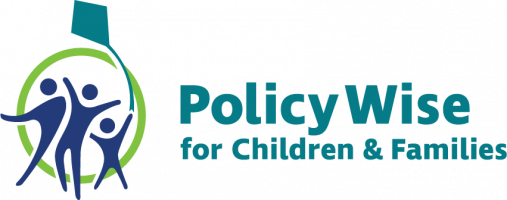
Since May 2023, Alberta’s wildfires have affected many towns and communities. Hundreds of families have been evacuated, not knowing if they will have a home or a community when they return. Worrying about what is happening or what is next, entire communities are under high stress.
Disasters, like wildfires or flooding, can increase mental health concerns. These concerns are not only for the people affected by the disaster. Community mental health infrastructure weakens and services become more challenging to coordinate. If these concerns are left unaddressed, they can have long-term impacts on affected communities.
Addressing, protecting, and improving people’s mental health and well-being must be a priority for disaster emergency response and recovery efforts. Mental health and psychosocial support programs and services can help communities recover and enhance resilience after a crisis. This requires coordinating these programs and services among agencies, social non-profits, the government, and the community.
To strengthen community mental health and well-being disaster support, we partnered with the Canadian Red Cross and reviewed the best practices and research. Based on this research, we developed six principles and five actions to guide those providing mental health and psychosocial services to communities affected by disasters.
Principals
- Protect Human Rights, Dignity, and Culture
- Facilitate Safety, Healing, and Calm
- Build Community Capacity
- Integrate and Layer Supports
- Strengthen Community Connections
- Foster Clear Communication
Actions
- Strategic Planning
- Funding
- Assessment, Monitoring, and Dissemination
- Convening and Coordinating
- Supporting Personnel
- Downloads

Strengthening Community Mental Health & Psychosocial Support During Emergencies Report
Intertwining principles and actions for providing mental health and psychosocial programs and services to communities affected by disasters.
This project has been funded by Canadian Red Cross.


